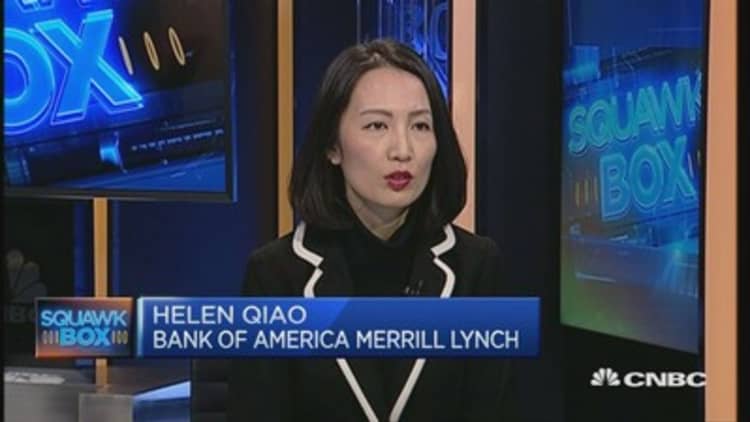
China's recent data showed a significant easing in capital outflows from the country as concerns about a slowdown in the world's second-largest economy abated, central bank governor Zhou Xiaochuan said on Sunday.
Some short-term speculative money may be leaving China, a reversal of the trend a few years ago when China saw big capital inflows, Zhou told a high-level economic forum in Beijing.
But such outflows are not worrisome, he added.
At the same briefing, China's Vice Premier Zhang Gaoli said the country's economy still faced downward pressure but that recent data pointed to some improvement in activity.
Chinese leaders have repeatedly tried to reassure jittery financial markets and China's major trading partners that Beijing is able to manage the slowing economy, following a slide in the country's stock market and depreciation of the yuan.
"We don't want to shy away from saying that China's economy is facing downward pressure, but overall the progress is steady," he said.
Recent data, until early March, including fixed-asset investment and employment, showed that the economy is improving, Zhang told the forum.
China's manufacturing output in January and February grew at its weakest pace since 2008, according to data released by the National Bureau of Statistics earlier this month.
The government will make preemptive policy adjustments to help keep economic growth within a reasonable range, Zhang said, reaffirming the official stance.
The government has set a growth target of 6.5 percent to 7 percent for 2016. The world's second-largest economy expanded by 6.9 percent in 2015, its slowest pace in 25 years.
Beijing has pledged to make monetary policy more flexible this year even as it leans more on increased fiscal spending and tax cuts to support economic growth and cushion the pain from structural reforms.
The government also needed to prevent risks in the stock, debt, currency and property markets, prevent "cross infection" in between the markets and ward off systemic risks in the economy, Zhang said.
China will press ahead with "supply-side reforms" to cut excess industrial overcapacity, focusing on such sectors as coal, steel, aluminum and plate glass, he added.




